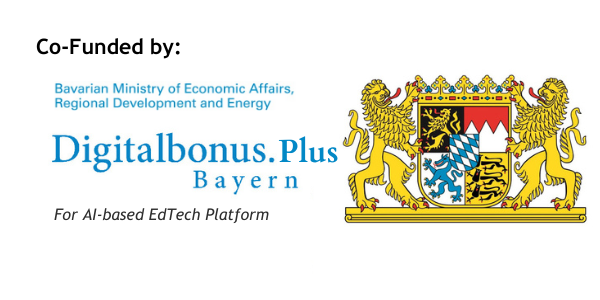Workation: The Future of Work and Travel in One Concept

What is Workation?
The concept of workation has gained significant traction in recent years as companies and employees seek more flexibility in their work arrangements. The term is a blend of “work” and “vacation,” referring to the practice of working remotely while being in a different, often more scenic, location. Unlike traditional remote work, which typically happens from home, workation allows professionals to perform their tasks from resorts, co-working spaces, or rental apartments in various countries. This approach merges productivity with travel, enabling employees to balance professional responsibilities with a change of environment that can be both refreshing and inspiring.

Companies worldwide have started embracing this model as an alternative to the traditional office setup, recognizing its potential to boost morale, enhance creativity, and improve work-life balance. Employees, on the other hand, enjoy the freedom to explore new places while maintaining their job security and career growth. However, as enticing as workation sounds, there are several legal and logistical factors to consider, especially in countries with strict labor and tax laws.
Origins of Workation: Who Started It and When?
The idea of working while traveling is not entirely new, but the formalization of workation as a widely accepted practice emerged in the last two decades. Initially, digital nomads — freelancers, remote workers, and entrepreneurs—were the pioneers of this lifestyle, leveraging advances in technology to work from anywhere with a stable internet connection.
The trend gained further momentum as co-working spaces, such as WeWork, Regus, and Impact Hub, expanded globally, catering to professionals who needed flexible office setups. Tech giants like Google, Microsoft, and Airbnb started experimenting with hybrid work models in the 2010s, encouraging their employees to explore alternative work environments. However, the COVID-19 pandemic significantly accelerated the shift, making remote work a necessity rather than a privilege. As travel restrictions eased, companies realized that offering workation options could be a strategic advantage in retaining and attracting top talent.
Now, industries beyond tech, including finance, consulting, and creative sectors, have begun adopting workation policies, allowing their employees to work from different parts of the world without affecting productivity.
Workation Regulations in Germany and the European Union: Key Challenges and Legal Considerations
While workation offers undeniable benefits, it also comes with regulatory challenges, particularly in Germany and the European Union (EU). Several aspects need to be addressed before an employee can legally work from another country for an extended period.
1. Tax Implications
- If an employee spends more than 183 days in a foreign country within a calendar year, they may become liable for income tax in that country.
- Companies and employees should ensure they comply with local tax laws to avoid unexpected financial consequences.
- Some EU countries have double taxation agreements that help mitigate overlapping tax responsibilities, but the specifics vary by jurisdiction.
2. Health Insurance & Social Security
- Employees must ensure their health insurance extends to their host country.
- National health plans may not cover long-term stays abroad, so additional private insurance is often necessary.
- Social security contributions may shift depending on the country of residence, which can affect pension and benefits eligibility.
- Coordination between systems is possible through existing EU agreements, but still requires administrative diligence.
3. Work Permits & Visas
- EU citizens can generally work freely across member states without a visa.
- Non-EU citizens, even if employed by an EU-based company, may need special permits to work remotely from a different EU country.
- Digital nomad visas have emerged as a legal framework for remote work, but these come with specific conditions and limitations that vary by country.
4. Permanent Address & Banking Regulations
- In countries like Germany, maintaining a registered permanent address is required for many official processes, including taxation and banking.
- Prolonged overseas stays without updating legal residence can trigger account restrictions from some banks.
- These issues can disrupt salary deposits, payments, or access to financial services.
5. Data Privacy & Legal Liability
- Employees working remotely with sensitive data must comply with the EU’s GDPR and local privacy laws.
- Using unsecured Wi-Fi, unauthorized tools, or losing a device could lead to data breaches.
- Legal consequences include financial penalties, lawsuits, and reputational harm to the company.
- Employers should enforce secure data handling protocols, require VPN usage, and provide regular cybersecurity training to reduce these risks.
Companies that want to offer workation to their employees must ensure full compliance with these regulations to prevent legal complications. Many businesses now collaborate with global HR and legal experts to navigate these complexities effectively.

Benefits of Workation for Employees and Companies
Advantages for Employees
- Enhanced Work-Life Balance
Workation provides employees with an opportunity to combine professional responsibilities with leisure activities. This balance leads to increased well-being, reducing burnout and stress associated with traditional office work. - Increased Productivity & Motivation
A change in environment can boost creativity and motivation, leading to higher levels of engagement during working hours. Employees working from inspiring locations often report being more focused and productive. - Sense of Freedom & Flexibility
Unlike rigid office structures, workation allows professionals to design their own work schedules, giving them the freedom to explore new cultures, cuisines, and experiences. - Opportunities for Personal Growth
Living in a new country, even temporarily, fosters cultural exposure and adaptability, skills that are highly valuable in today’s interconnected world.
Advantages for Companies
- Reduced Operational Costs
With more employees working remotely, businesses can cut expenses on office space, electricity, and on-site amenities like cafeterias and security. - Higher Employee Satisfaction & Retention
Employees with flexible work arrangements tend to be happier and more loyal, reducing turnover rates and recruitment costs. - Access to a Global Talent Pool
Companies that embrace workation can hire from anywhere in the world, tapping into diverse skills and expertise without geographical limitations. - Sustainability & Reduced Carbon Footprint
Fewer employees commuting daily means lower emissions, contributing to corporate sustainability goals.
Which Companies Offer Workation Today?
Many organizations have integrated workation programs into their corporate policies. Some of the leading companies in Germany and across Europe that encourage workation include:
- SAP (Germany) – Offers flexible remote work policies with options for extended workation periods.
- Zalando (Germany) – Allows employees to work remotely from other EU countries for a set number of days per year.
- Spotify (Sweden) – Launched the “Work from Anywhere” policy, enabling employees to work from any country where the company operates.
- Airbnb (Global) – Encourages employees to live and work from different locations, promoting cultural exchange.
- Revolut (UK) – Provides full flexibility for employees to choose where they work, with minimal location restrictions.
Additionally, countries like Portugal, Spain, and Estonia have become major hubs for workation due to their supportive visa policies, affordable cost of living, and high-speed internet infrastructure.
The Future of Workation: Trends and Predictions
Drawing on recent surveys and industry reports, we trace the growth of digital nomadism, gauge employee interest in working abroad, and show how remote work prevalence sets the stage for continued workation uptake.
Digital Nomad Population Growth
- 2019: 7,75 million Americans identified as digital nomads before the pandemic.
- 2022: That number doubled to 15,5 million by the end of the year, reflecting a 100% increase over three years.
- 2023: Growth slowed, rising to 17,3 million — a 12% year-over-year increase.
- 2024: MBO Partners reported 18,1 million digital nomads in the U.S., marking a further 4,7% increase (147% since 2019).
- 2025 (Projected): Industry analysts forecast the number will reach 19 million, a 4,9% rise over 2024, as hybrid work cements itself as the norm.
Workation Uptake Among Remote Employees
- In a July 2021 Skift survey, 23% of U.S. remote workers said they had taken extended trips specifically because they could work from anywhere.
- By December 2023, 35% of fully remote employees reported at least one “workation” of two weeks or longer in that calendar year, up from 28% in 2022.
- A June 2024 Hubble survey found 42% of employees would like the option to work abroad if given the chance, indicating strong latent demand.
Employee Sentiment & Demand for Workations
- 82% of digital nomads between ages 25–40 say workations improve their work–life balance, up from 74% in 2022.
- 68% of hybrid workers believe that short-term workations (1–2 weeks) increase productivity, an increase from 55% reported in early 2020.
Remote Work Prevalence as the Foundation
- February 2020: 7% of U.S. workers teleworked regularly.
- October 2020: Telework peaked at 55% among employees capable of remote work.
- January 2022: The share eased to 43%.
- March 2023: It settled at 35%.
- April 2025: 22,8% of U.S. employees continue to work remotely at least part-time—more than 36 million people — down slightly from 24% in early 2024.
Hybrid & Remote Job Postings
- Fully in-office listings fell from 83% of all job posts in early 2023 to 60% by late 2024, showing ongoing employer shift toward flexible models.
With increasing demand, workation is transitioning from a niche trend to a mainstream work model, offering a win-win solution for businesses and employees alike. The question is no longer if workation will become the norm, but rather when your company will embrace it. At WiredWhite, our platform concept empowers all Partners with 100% workation capability, ensuring seamless, fully remote experiences wherever they choose to be.













There is definately a lot to find out about this subject. I like all the points you made